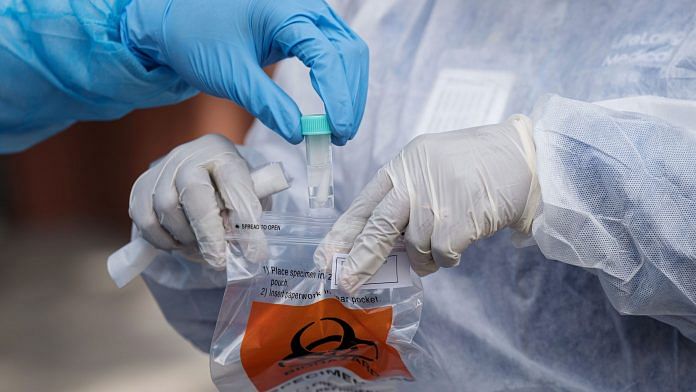New Delhi: As the world continues to battle a deadly pandemic, scientists from across the world are working on finding out more about the virus and how it affects us.
Here are the latest research findings on the coronavirus front.
Neurologists outline how coronavirus infection damages the brain
Scientists have conducted a comprehensive review of how the novel coronavirus affects the brain and classified the brain damage caused by the virus into three stages.
The study, published in the Journal of Alzheimer’s Disease, may help assess the long-term effects of the infection on the brain.
The researchers stressed on the need for Covid-19 patients to receive a brain MRI before leaving the hospital. The team pointed out that understanding the nature and severity of the neurological deficits in Covid-19 patients can help find ways to promote healing of the brain.
The team concluded that brain damage due to Covid-19 occurs in three stages.
‘
In the first stage, the virus damage is limited to epithelial cells of nose and mouth. The main symptoms include transient loss of smell and taste.
In the second stage, the virus triggers a cytokine storm — toxic proteins released as a result of an overactive immune system. This begins in the lungs and travels through the blood vessels to all the organs, leading to the formation of blood clots that cause strokes in the brain.
In the third stage, an ‘explosive level’ of cytokine storm damages the blood-brain barrier — the protective insulation layer in blood vessels of the brain. As a result, blood content, inflammatory markers, and virus particles invade the brain and patients develop seizures, confusion, encephalopathy or can even go into a coma.
Also read: Double lung transplant for Covid-19 treatment: US performs surgery in a global ‘first’
A drug under trial for Covid-19 treatment may increase risk of bacterial infections
Studies in mice suggest that a class of drugs known as interferons, which are being tested as possible Covid-19 therapy, may increase a patient’s susceptibility to bacterial infections.
The study, published in the journal Science, suggests that the susceptibility to bacterial infections depends on how long patients are exposed to interferons and when they receive it.
Interferons are naturally secreted proteins that help fight viral infections in the lung. Type III interferons (IFN- λ) have attracted much attention, because, unlike other IFNs, they show antiviral effects without driving inflammatory responses.
Although clinical trials exploring use of IFN-λ against SARS-CoV-2 have begun, the long-term effects of these drugs on lung physiology remain largely overlooked.
Researchers studied the lungs of mice exposed to a synthetic viral RNA. In these animals, IFN-λ secreted by cells caused damage to the lung tissues, which increases susceptibility to lethal bacterial super-infections.
Covid-19 RT-PCR tests give false negative results if used too early
Testing people for SARS-CoV-2 too early in the course of the infection is likely to result in a false negative test, even though they may eventually test positive for the virus.
The study, published in the journal Annals of Internal Medicine, indicates that a negative test does not guarantee that a person is not infected by the virus.
The research team from US’ Johns Hopkins University said that patients who have a high-risk exposure should be treated as if they are infected, particularly if they have symptoms consistent with Covid-19.
For the study, the team reviewed RT-PCR test data from seven prior studies, including two pre-prints and five peer-reviewed articles. The studies covered a combined total of 1,330 respiratory swab samples from a variety of people.
The team found that people were 67 per cent more likely to test negative in the four days after infection. When the average patient began displaying symptoms of the virus, the false-negative rate was 38 per cent. The test performed best eight days after infection, but even then one in five people who had the virus had a negative test result.
Also read: Indian drugmaker Lupin voluntarily recalls metformin variant, a diabetes drug, in US
Exiting lockdown should be done by letting population out in two phases
A gradual strategy, where people start venturing out of their homes in two phases, would be optimal for exiting the lockdown to minimise deaths from Covid-19 while also protecting the economy, scientists suggest.
The researchers from University of Oxford in UK propose that half the population should be released approximately 2-4 weeks from the end of the initial infection peak. Then, after a waiting for another 3-4 months, to allow for a potential second peak to pass, everyone else can be allowed to venture out.
The researchers suggest that the younger part of the population, who are less susceptible to Covid-19, be let out in the first phase, although they will need to be regularly monitored with tests.



